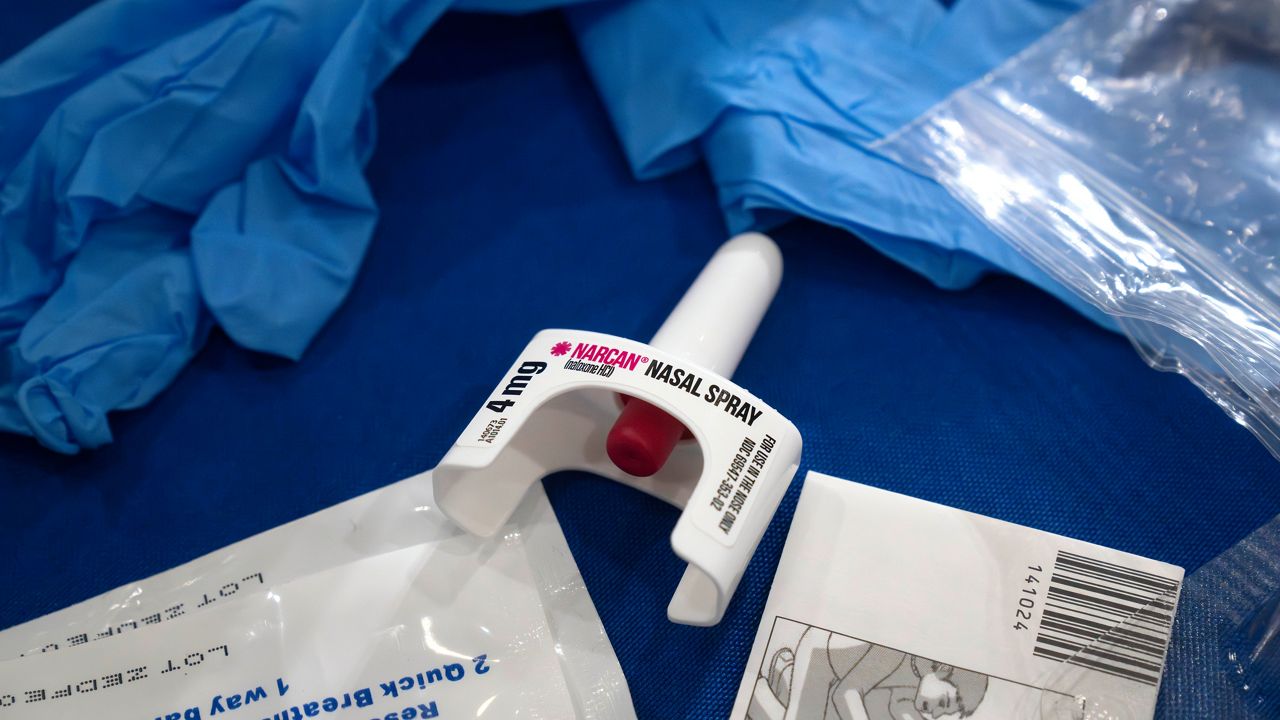FRANKFORT, Ky. — It’s the final legislative day before the governor’s 10-day veto period and the General Assembly is acting on its last batch of priority bills. These are bills they want passed now if they want to overturn a potential veto from the governor.
An omnibus crime prevention bill, known as the Safer Kentucky Act, received final passage by the House after being amended by the Senate and heads to the governor's desk. It’s been the center of debate between Republicans and Democrats all session long.
The Safer Kentucky Act, also known as House Bill 5 creates a three-strikes law for violent crimes, makes street camping a criminal offense and increases penalties for some crimes. Since January, Democrats have strongly opposed the bill saying it has unknown costs, would worsen overcrowding in jails and does nothing to address the root causes of crime.
State Rep. Josie Raymond, D-Louisville, has called the bill “irresponsible” and “messy.”
“This bill, rather than acknowledge the difficult work required to actually make Kentuckians safer, has one solution to a whole host of societal problems and that’s increase penalties and lock them up,” Raymond said.
Republicans have applauded the bill, saying it will decrease crime, specifically in Louisville. The three strikes rule for violent offenders would be an automatic life sentence after their third conviction of a violent offense. HB 5 also creates a statewide carjacking statute. The bill expands what classifies as a violent offense, now including arson, strangulation and second-degree robbery.
State Rep. Jared Bauman, R-Lousiville, the bill’s primary sponsor, said he would like to see the crime rate in Louisville decrease.
“I choose to focus on the innocent 4.5 million Kentuckians that have to be subjected to crime and criminal activity in their community on a regular basis today to the point where it’s just become normalized,” Bauman said.
The latest version of House Bill 11 includes language from a similar senate bill, Senate Bill 344. Both bills create rules on what vape and e-cig products can be sold at stores in Kentucky. The amended bill requires store owners to be authorized by the state to sell e-cigs the U.S. Food and Drug Administration has authorized for use or is in the process of getting authorization. The provision also applies to online retailers.
State Sen. Brandon Storm, R-London, was the main sponsor of Senate Bill 344; some language from his bill was put into House Bill 11 sponsored by State Rep. Rebecca Raymer, R-Morgantown. Storm said their concern is the fruity, fun-flavored products targeted toward kids.
“Primarily my concern was the Chinese vapes and as you can see on those boxes I showed, if you look on the back of them, they all say ‘made in China,’ only to be sold in the United States. I know what’s in this (bottle of) water, I don’t know what’s in those vapes, so that’s my concern for our kids,” Storm said.
Troy Leblanc testified against the bill Thursday morning at a Senate judiciary committee meeting. Leblanc owns multiple vape stores in Louisville and southeastern Indiana; he said most vape store owners are not selling to minors. He believes HB 11 will do nothing to solve the underage vaping problem.
“All of our stores will go out of business and the number one bad actor, which is gas stations and convenience stores, are now going to sell Juuls all over the state,” Leblanc said.
Headed into day 58 of the legislative session, bills that would make it harder to receive SNAP benefits and loosen labor restrictions for minors were still up in the air; according to the Legislative Research Commission’s website, neither HB 367 nor HB 255 has had their third reading in the Senate.
The Horizons Act, which would have invested $300 million in pre-K, is dead and will not get passed this session according to bill sponsor, State Sen. Danny Carroll, R-Benton.
A bill changing how a vacant U.S. Senator seat is filled also passed Thursday morning. House Bill 622 received final passage in the Senate; it would hold a special election to fill the vacancy rather than a gubernatorial appointment.










